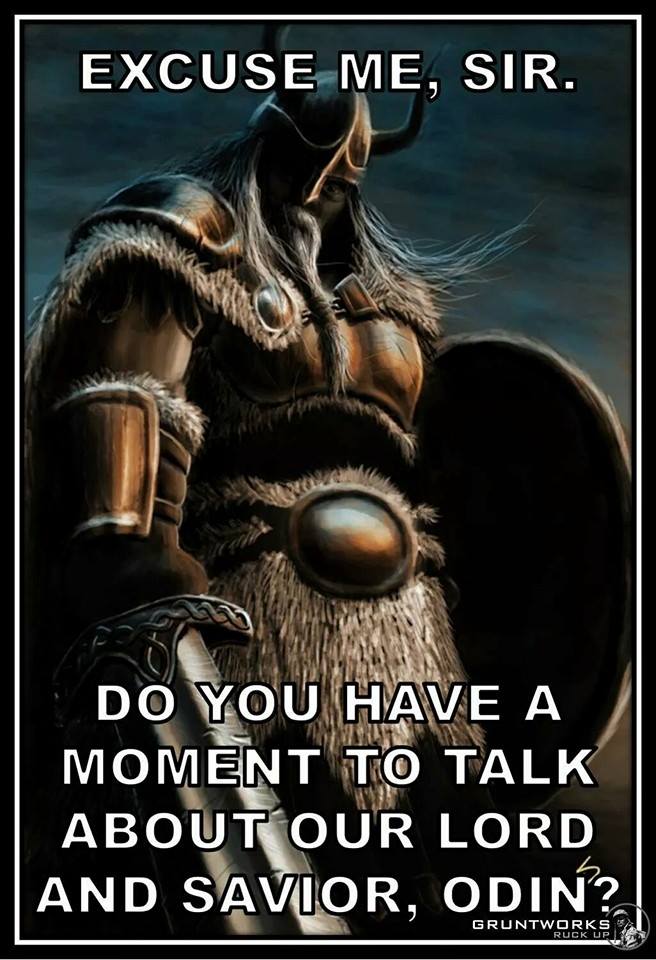The Meaning Behind the Death of Baldr and the Summer Solstice
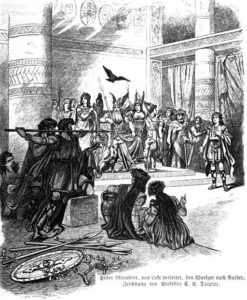 One of the most iconic stories in Norse mythology is the death of Baldr. It is probably the best known among Heathens and often recited by the anti-Lokeans as a way to justify why the Rokkatru are wrong to even consider venerating Loki and his ilk. While I’m not Rokkatru (although I suppose someone can point to me being a follower of Skadi as being a Rokkatru), I do have a deeper analysis of why the story of Baldr’s death is more than face value.
One of the most iconic stories in Norse mythology is the death of Baldr. It is probably the best known among Heathens and often recited by the anti-Lokeans as a way to justify why the Rokkatru are wrong to even consider venerating Loki and his ilk. While I’m not Rokkatru (although I suppose someone can point to me being a follower of Skadi as being a Rokkatru), I do have a deeper analysis of why the story of Baldr’s death is more than face value.
The Story of Baldr
If you know the story of Baldr’s death, you can safely skip this section. Or, you can read it and pick my version of it apart. The story goes that Baldr, the son of Odin and Frigga, was the most fair of all the gods. So much so that he was beloved by everyone. Everyone, of course, except Loki, who was mighty annoyed at so much love and reverence being passed out to Baldr.
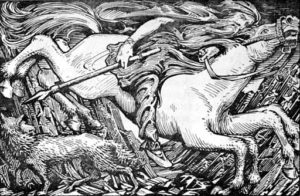 Baldr had nightmares of his death. Odin therefore went to Niflheim to consult a dead seeress to find out what was the cause of Baldr’s nightmares. The seeress told Odin that that Baldr would die by Hodr’s hand (Hodr is the brother of Baldr).
Baldr had nightmares of his death. Odin therefore went to Niflheim to consult a dead seeress to find out what was the cause of Baldr’s nightmares. The seeress told Odin that that Baldr would die by Hodr’s hand (Hodr is the brother of Baldr).
Terrified of the prophecy, Frigga made it a mission to get every rock, stone, weapon, plant, and creature in the Nine Worlds to promise to never hurt Baldr. Everything agreed to her satisfaction, so when it proved that nothing could harm him, the gods decided to make a game out of it. They threw things at Baldr and the stones and spears would turn aside and not harm him. Weapons would not cut him. So they all gathered around and laughed while throwing things at him.
The Death of Baldr
Loki despised this, and so he went to Frigga disguised as an old woman. He struck up a conversation with Frigga and asked about Baldr’s invincibility. In the course of their conversation, Frigga admitted that she hadn’t asked the lowly mistletoe to swear an oath to not harm Baldr because it was weak and too young. Loki then knew he had his weapon. He left and fashioned a dart out of the mistletoe.
When he came back to the game the gods were still playing, he noticed that Hodr, Baldr’s blind brother, 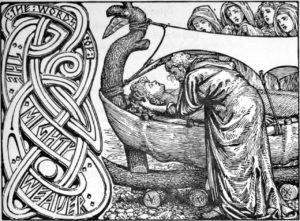 was not throwing things. Loki offered to guide Hodr’s hand so he could throw something. He put the mistletoe into Hodr’s hand. Hodr threw and the dart pierced Baldr’s heart. Baldr fell dead.
was not throwing things. Loki offered to guide Hodr’s hand so he could throw something. He put the mistletoe into Hodr’s hand. Hodr threw and the dart pierced Baldr’s heart. Baldr fell dead.
Baldr went to Hel’s domain. Odin sent his son, Hermod, to rescue Baldr from the dead. Hel told Hermod that if everything truly wept for Baldr, she would release him. Everything did, except the giantess Tokk, who was Loki is disguise. Tokk told the messengers that Hel should keep what she has. So, Baldr stays in Hel and it is the beginning of Ragnarok. Baldr survives Ragnarok and is once more alive.
What Does the Death of Baldr Mean?
We can look at the story of the death of Baldr at face value, or we can look at it as a metaphor. I prefer to look at it as a metaphor since our gods are clearly aligned with nature. Even though they have distinct personalities, they are still gods of natural phenomenon.
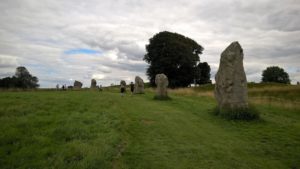 The story of Baldr is the story of the seasons and the natural cycle of life. Our northern ancestors revered the sun and its life-giving heat and warmth. We know the summer solstice was a holy time for northern pagans — especially those who built monuments to the sun during the neolithic age. Baldr is clearly associated with the midsummer sun — the sun at solstice. It is no surprise that his blind brother, Hodr (winter) slays him with the help of Loki (who is a chaos god) which brings about renewal (Ragnarok). Baldr is the renewal of life and all the beauty associated with it. Hodr is the old age and the impending death. Loki (chaos and entropy) brings these changes about.
The story of Baldr is the story of the seasons and the natural cycle of life. Our northern ancestors revered the sun and its life-giving heat and warmth. We know the summer solstice was a holy time for northern pagans — especially those who built monuments to the sun during the neolithic age. Baldr is clearly associated with the midsummer sun — the sun at solstice. It is no surprise that his blind brother, Hodr (winter) slays him with the help of Loki (who is a chaos god) which brings about renewal (Ragnarok). Baldr is the renewal of life and all the beauty associated with it. Hodr is the old age and the impending death. Loki (chaos and entropy) brings these changes about.
So, What Does this Have to do with the Upcoming Solstice?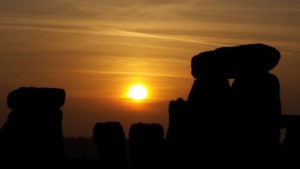
You may be wondering why I bring this up with the summer solstice just around the corner. Baldr is at his greatest power at that time, since we have the most daylight on that day. While it is officially summer by meteorological terms, it is also the beginning of the end of increasing light. Once the summer solstice has passed, the amount of daylight begins to dwindle until we reach the winter solstice, when the sunlight starts increasing again.
But the high point of the sun is the beginning of the end of the growing season, just like Baldr’s death is the beginning of Ragnarok. Sure, we have plenty of growing and maturation of plants to come, but the waning light signals the end of spring and the beginning of maturation. Maturation will culminate in the end of the growing season and the beginning of harvest. The Northern Hemisphere marches toward darkness once more.
Sunshine and Mistletoe
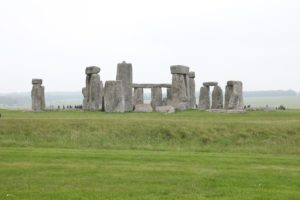 It’s little wonder why the mistletoe is a symbol of the winter solstice, since it is the symbol of Baldr’s death. But the winter solstice is also the symbol of the return of life. We know that the days will grow longer again after December 21st, just as we know the days will start to grow shorter after June 21st. So, this summer solstice, raise a horn or glass of mead to the god of rebirth and renewal. Because we know that Baldr may “die” with the oncoming winter, but he will be reborn once again. (And the Christians thought that they were the only ones with a god who dies and is reborn?)
It’s little wonder why the mistletoe is a symbol of the winter solstice, since it is the symbol of Baldr’s death. But the winter solstice is also the symbol of the return of life. We know that the days will grow longer again after December 21st, just as we know the days will start to grow shorter after June 21st. So, this summer solstice, raise a horn or glass of mead to the god of rebirth and renewal. Because we know that Baldr may “die” with the oncoming winter, but he will be reborn once again. (And the Christians thought that they were the only ones with a god who dies and is reborn?)
Let me know about your own insights into the death of Baldr and how you plan to celebrate the summer solstice.
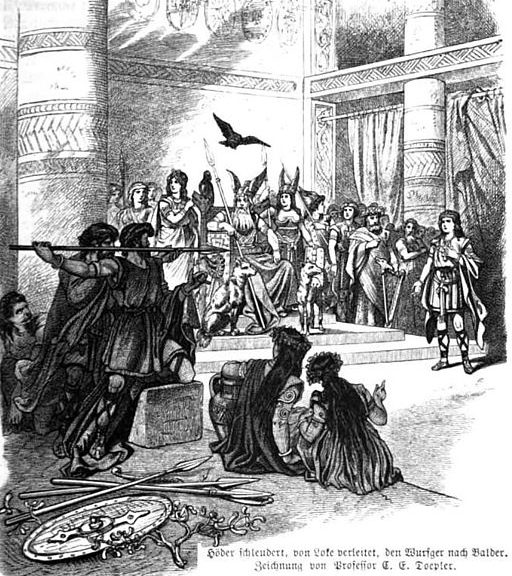
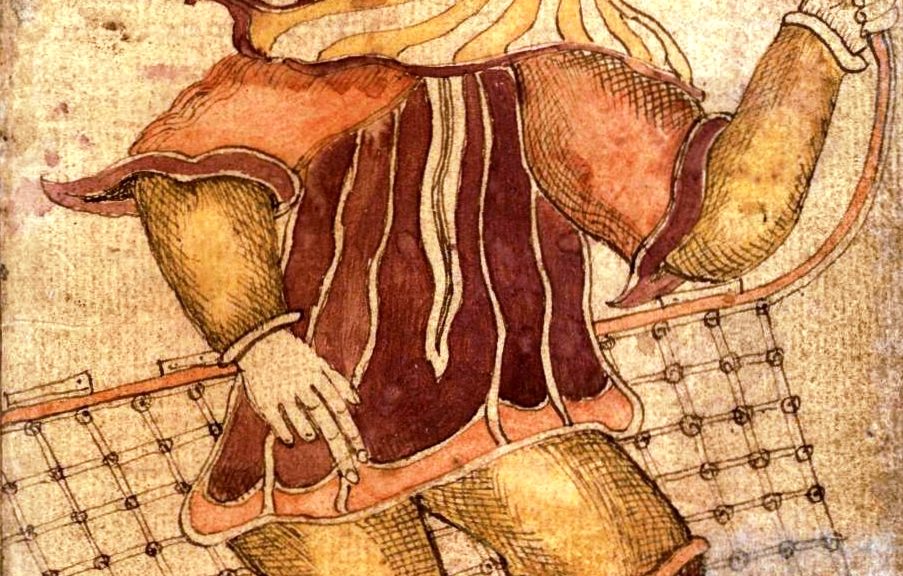
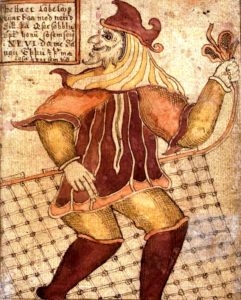 Loki is a bit of an enigma when it comes to the Northern pantheon. No god causes such turmoil among Heathens when it comes to our gods. Did Loki really exist in the pantheon? Was he worshiped? Was he a creation of Snorri? It’s almost as if the trickster intentionally caused this entire debate–which would suit him just fine.
Loki is a bit of an enigma when it comes to the Northern pantheon. No god causes such turmoil among Heathens when it comes to our gods. Did Loki really exist in the pantheon? Was he worshiped? Was he a creation of Snorri? It’s almost as if the trickster intentionally caused this entire debate–which would suit him just fine. 